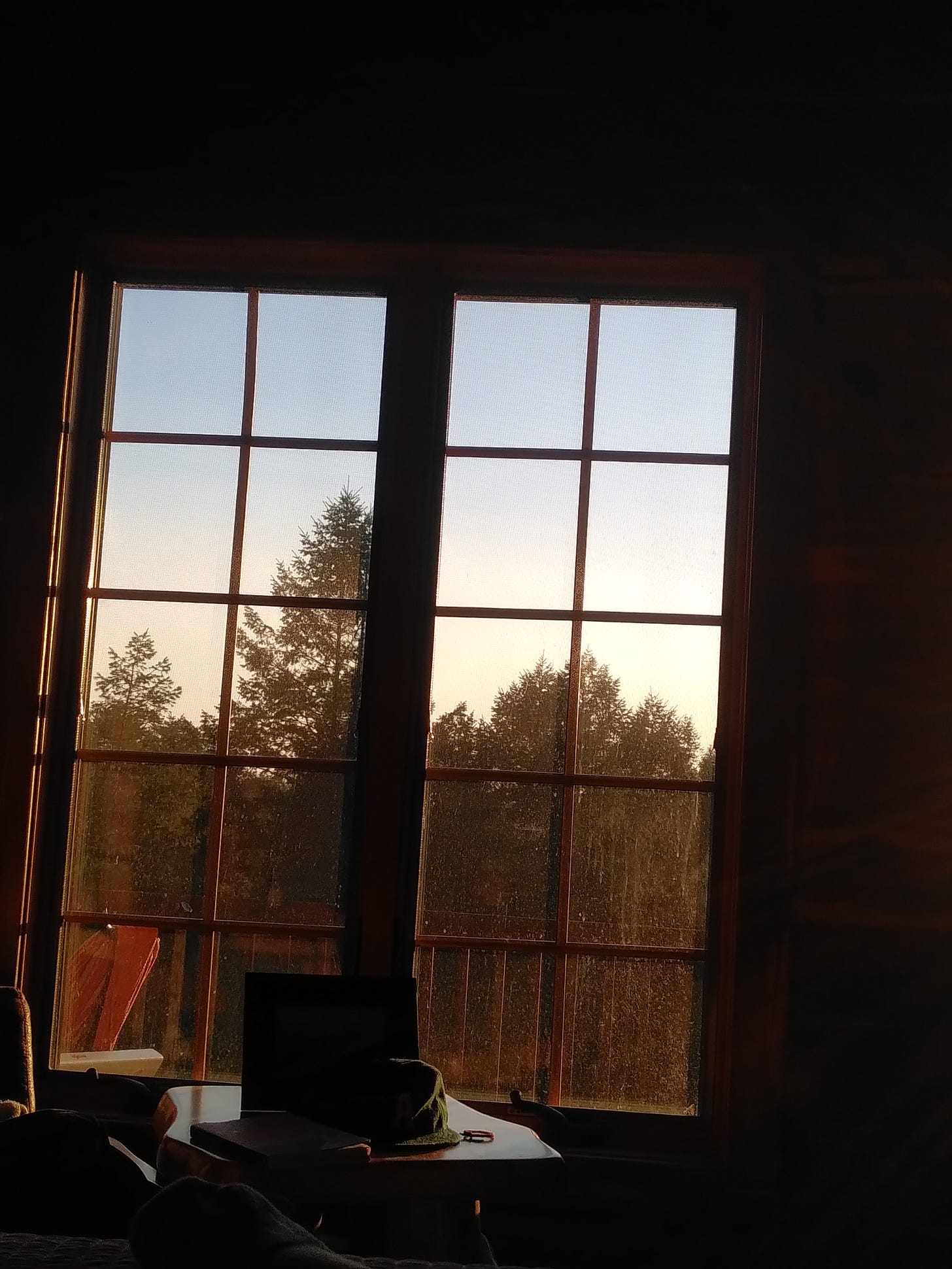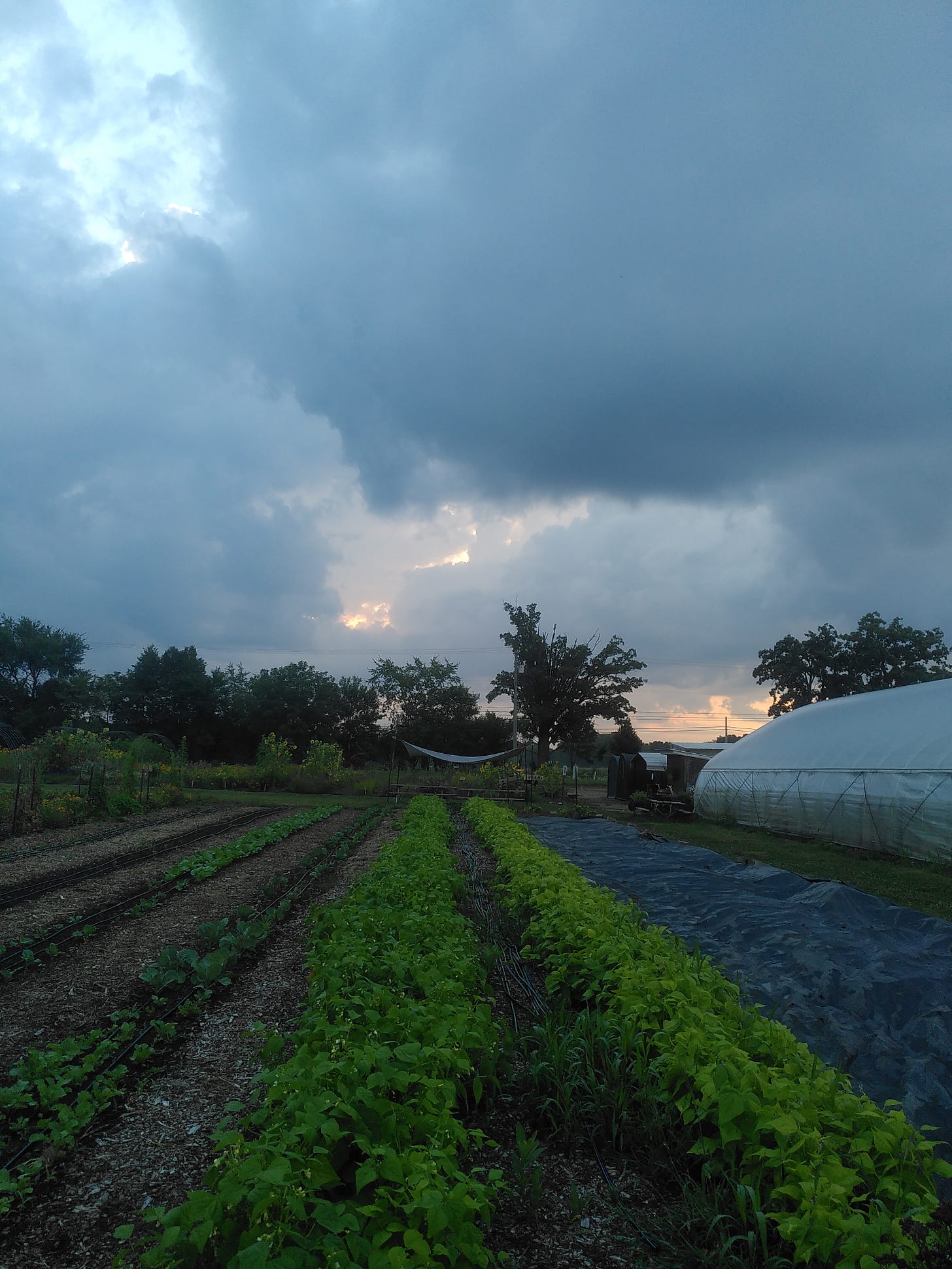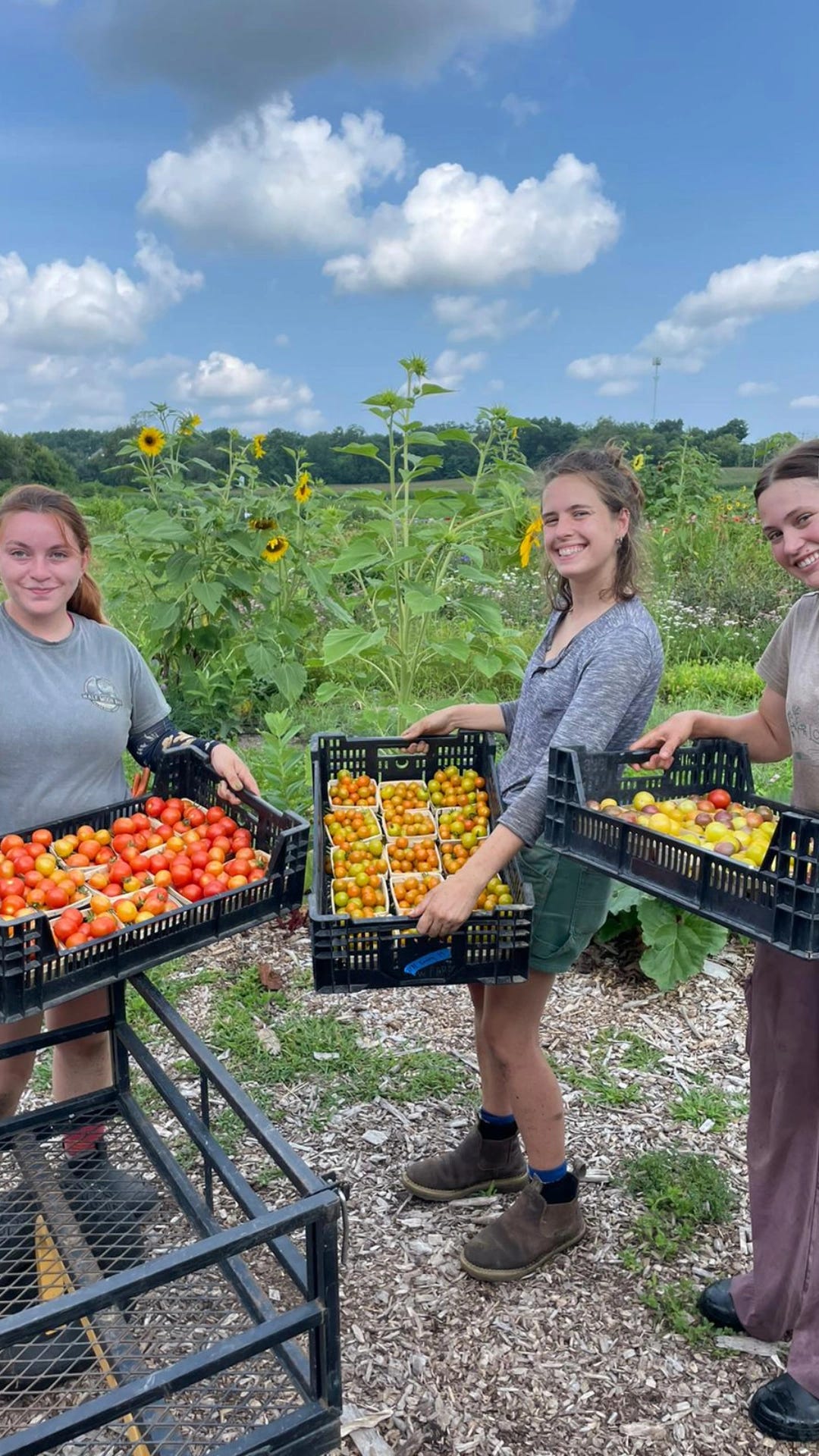Hello, I’m here. I’m fine. I’m tired.
Welcome to Scrap Kitchen, the Podcast/Newsletter where I (intermittently) talk about running a farm, starting a farm and growing good food in this mixed-up climate.
For a moment there, as my partner and I ventured North to drink wine and swim in lakes and not work for 4 days, it felt like Autumn. The air chilled, the leaves began their tantalising dance of changing colours and I got a glimpse of rest.
And now it’s 32°C.
Will there ever be a newsletter/podcast instalment where I don’t talk about how the climate is changing? Not bloody likely.
But it has been a while. A damn while. A long few months of radio silence.
Almost so long it is awkward to come back here and write, this, to speak it. But also not because my dad keeps asking when the next ‘Scrappy Kitchen’ will be, so I’m doing it for him.
Question number 1: Does anyone know any immigration lawyers for the UK?
We’ve had a setback. Or as I want to call it, a switchback. Like we’re climbing up a mountain pass and it’s just too steep to go straight up. So zig-zagging, at times it feels like there is no end or reason to the hairpin turns, but eventually, when you crest the hill, when you break through the clouds, you’ll see what you’ve climbed.
Anyways. We’ve had a switchback.
My partner and I do not meet the financial requirements for a family visa. It’s as simple as that. I’ve been joking that we just can’t read and somehow misconstrued the minimum cash-saving requirement. But really it’s purposefully vague. Obtuse.
To be allowed into the country you need to prove that our combined income will be £29k a year. Which honestly was (by pure coincidence) the amount we were planning on earning in our second year. But certainly not in our first. We have some cash savings but not enough to make up for £29k a year for 3 years (I mean, who has that much, honestly).
So now we need proof. More than a business plan. More than all our bank accounts and texts going back several years (so that they can see we are in fact a real couple). And honestly, we need advice.
The plan is as follows: Submit a business plan. Get a land agreement. Set up UK LLC. Get lawyer to look it all over. Get any extra paperwork. Apply for Visa. Get Visa. Move everything we own to the UK. Find flat, get driver’s licences. Farm.
Easy.
Easy.
It’s certainly not happening before November.
Oh and at the same time keep the current farm running and set them up for the transition of us leaving. No big deal.
So I ask again: Does anyone know an immigration lawyer?
Current Farm Updates
We are in fruit season. In one day we managed to harvest 240 pints of Cherry Tomatoes and a total of 600 lbs. In. One. Day.
That’s not to mention the Aubergine and Peppers pumping out fruit like nobody's business. Every day that we work there is some form of harvest. Which is wonderful, abundant, exhausting.
As I write this we are entering week 35 of the year. It is wild that we are that far into 2024. Within the plan that we made last winter, which details the crops we will plant, when, where, how many, predicted harvest etc. we were looking to finish planting everything by week 36. That means the final round of Asian greens is already starting. The onion seeds we collected last week are going to be germ-tested and used for green onion seedlings. It means everything in the ground just has to last a couple more months.
This time of year is also a great one for seed saving. Over the season we have been leaving little painters-tape notes on which plants are looking best of the tomatoes, which fruited the earliest, which are standing up to disease. Over the next week, I will be selecting fruits from the hardiest plants. I’ll also be looking for fruits that are the right size, shape and colour, to maintain the distinct varieties of each tomato. Then I’ll be fermenting the seeds in their own juices for a few days to imitate the digestion process. Then comes washing and drying. Easy as that you have saved tomato seeds.
For farmers who are teetering on the edge of burnout at this time of year (vibes) the idea of saving seed can seem like just another thing to do. Another unending task. But the reward far outshines the work of it. The tomato seeds we saved last year have produced the strongest plants this year, they were earlier to fruit and seem to hold up better to our methods of trellising. By saving seed we are literally selecting plants that do best in our farm conditions.
The loss of saving seeds is relatively new. Only in the past 100 years have farmers stopped selecting their own best plants. Sometimes it has been made out to be too difficult, time or expertise-wise, but that is a straight-up lie. After spending months with these plants the farmer knows them better than anyone. Who better to pick the best ones? The only barrier is knowing how.

I digress. That’s just one of the small tasks in making the farm a little more self-contained. But mostly at this point in the season we are reaping the benefits of our hard work and keeping the plants alive for a couple more months.
Oh and itching to harvest Winter Squash.
Winter Squash is a trick one to harvest. In places that frost earlier, like where we trained in Colorado the first frost is used to kill off the plants, the squash are harvested (usually in one day) and the left to cure over several months. The curing process is seen as their stem turning from green to woody brown. Inside the squash, other changes are taking place; the flesh becomes a darker orange and the BRIX reading increases over time as the natural sugars build up. Curing helps winter squash be stored for long periods of time. And boy am I ready for winter squash recipes. The most autumnal of flavours.
But first, the plants must die back. And the harvested squash must cure. Farming is patience, yet again.
Future Farm Updates
This is the real reason for my absence. My partner Zach and I have now completed our 40+ page business plan for our farm. It has a name. It has the shape of an actual business. It has countless spreadsheets (9 per location we’re tailoring it to, I shit you not). It has heft. And pictures. And it has consumed us.
But currently, it is being looked over before we send it off. It will be sent off via the South West Land Match scheme run by the Landworkers Alliance. It’s a hopeful hurry-up-and-wait kind of time.
Aside from the gut-punch switchback of the Visa process, we’re in surprisingly good shape to actually begin proposing our business to people. Which is a nice place to be. Finally.
We set ourselves a deadline for the business plan to be finished (the week before we went up North) and managed to get it done in time.
So now comes the adapting. Each of the sites we are applying to has different markets, different potential customers and varying site details. Once our initial plan gets the OK we’re jumping on adapting it to the 4 other sites we’re interested in.
It’s a hopeful, heart-in-throat kind of time.
Thanks for sticking with it.
I mean it about that lawyer.
See you next time
M
Find me on Instagram, The Dots and my Website.
To support my work, please consider buying me a Coffee.
If you missed the last update, read it here.















